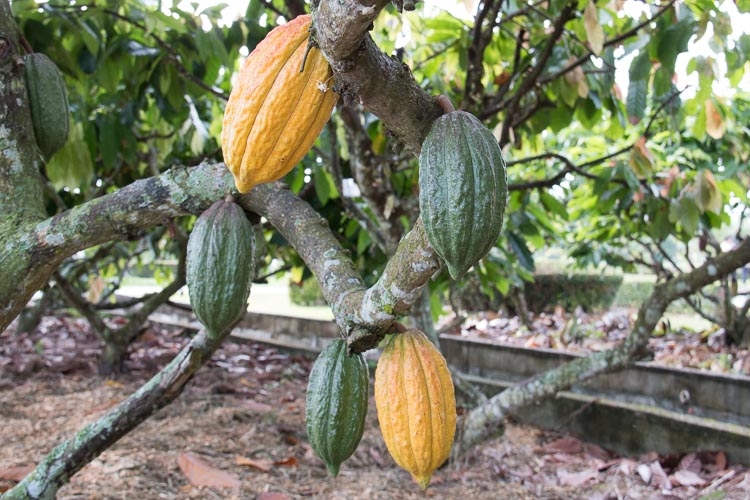
The objective of the project is to increase financial returns, yields, quality/safety and market access for smallholder cocoa growers and grower groups. The project is aimed at ensuring increased competitiveness and the sustainability of Papua New Guinea's cocoa industry through the consistent supply of high-quality, safe cocoa from smallholder-driven value chains. This is expected to result in sales to premium markets, have a positive impact on the livelihoods of rural households directly benefiting from the project, and lead to an increase in exports of high-quality cocoa.
Cocoa is the third-most important cash crop in Papua New Guinea, bringing in US$96.3 million in income in 2015 alone. Most coastal provinces in the country can grow cocoa. Between 70% and 80% of the income from its sale goes directly to smallholder cocoa farmers, who contribute 98% of total production, providing a livelihood for more than 151,000 households and 1 million people.
However, the industry faces problems with low and stagnant yields, inconsistent quality and sanitary and phytosanitary (SPS) risks associated with polycyclic aromatic hydrocarbon contamination as a result of defective driers. After the fermentation process, cocoa beans are dried using a combination of firewood and natural sunlight. The drier contains a kiln pipe made of mild steel, which acts as a conduit to transfer heat to the beans on the drier bed. However, mild steel is not durable and deteriorates within a few years, allowing smoke to come into contact with cocoa beans, resulting in smoke taint.
This project supports the cocoa industry and contributes positively to the goals set out in the 2016-2025 Cocoa Industry Strategic Plan by supporting improvements to food safety and quality management in the cocoa value chain. This is expected to promote cocoa exports, and benefit farmers and reduce poverty in rural communities.
Through a collaborative public-private partnership approach, the project looks to work closely with key exporters such as NGIP-Agmark and Outspan PNG Ltd, the two largest cocoa exporters in the country. The project targets 12 farmer groups in East New Britain province and three farmer groups in the Morobe province’s Markham Valley, which is home to about 1,500 rural farming households.
Papua New Guinea is one of only 23 countries recognised by the International Cocoa Organization for its high-value, fine-flavour cocoa. If SPS challenges such as polycyclic aromatic hydrocarbon and cadmium contamination along the supply chain are addressed, the country has the potential to export its cocoa to high-value premium markets. Papua New Guinea’s Cocoa Board and cocoa industry are committed to working together to put in place and demonstrate robust safety and quality management systems to control polycyclic aromatic hydrocarbon and cadmium contamination and other SPS issues within the value chain, and to expand exports to high-value markets.
The implementation of risk-based management systems
Members of smallholder groups are implementing risk-based safety and quality management systems to improve the yield, quality and safety of cocoa. This intervention targets production and processing for group-based production units to maximize output.
The establishment of a primary farm assurance protocol for smallholder cocoa production
The project is developing an appropriate and verifiable primary farm assurance protocol for the production of cocoa among smallholder farmers in Papua New Guinea for adoption by its cocoa industry. This certification would be driven within the country, with independent annual audits to verify compliance with control criteria for successful food safety management during the production of cocoa.
Greater capacity for smallholder cocoa growers
The project is developing and implementing a national cocoa curriculum for adult learners, which involves the development and implementation of a peer group training programme for smallholder cocoa growers. Although the training is provided by the country’s Cocoa Board and other private service providers, there is still a need to develop a standardized training program for key instructors.